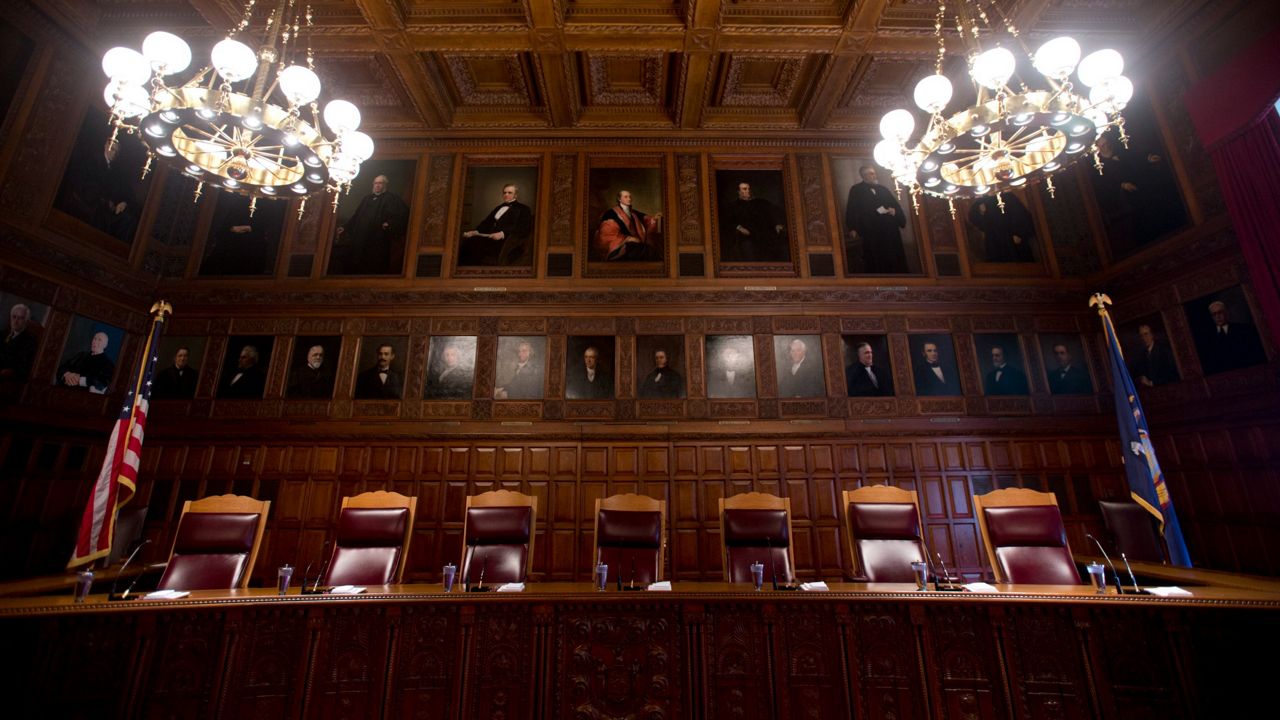New York’s top justices want to expand treatment courts and work with the Legislature to empower judges to divert more people with substance-use disorders into treatment when they’re convicted of a crime.
Judge Rowan Wilson, the chief justice of the state Court of Appeals, and Joseph Zayas, the chief administrative judge of the state’s Unified Court System, told lawmakers at a public hearing Friday they will work with policymakers to increase mental health and other treatment courts to address New York’s mental health crisis.
“It’s truly sad that a court might be the only place where a person can find someone who cares, but that’s all the more reason why courts must care,” Wilson said.
The state has 350 courts targeted to solve specific issues, including mental health, human trafficking and others. But Wilson said the state needs more, and that he backs implementing a law to prioritize rehabilitation over incarceration.
Legislation known as the Treatment Court Expansion Act would allow judges to prioritize people struggling with mental health issues or substance abuse to programs needed for recovery and not rely solely on incarceration.
State senators held a public hearing on the legislation in New York City on Friday to coincide with World Mental Health Day.
“There is a lot of evidence that treating people instead of incarcerating them provides better results for them, provides better results for all of us in terms of saving taxpayer dollars, but more importantly, keeping everybody safe,” Wilson said.
Violent crimes have declined since the COVID-19 pandemic, but people continue to feel unsafe on the street and subways.
Lawmakers said they plan to prioritize the measure next year to address an uptick of substance abuse and mental health issues with scientifically proven treatment — not just criminal punishment.
“We’re putting people in prisons without supports and then expecting them without the support to turn their lives around, and it’s not working,” said sponsor Assemblywoman Phara Souffrant Forrest.
Treatment would be left to the discretion of a judge assigned to a particular case.
People convicted of violent felonies would be required to plead guilty up front before starting treatment or other rehabilitative programming. Those facing nonviolent felony charges or misdemeanors related to mental health or substance abuse would be allowed to enter treatment programs immediately without pleading guilty.
Wilson argued it would improve public safety and save taxpayers money in the long run. It costs an average of $115,000 per year to incarcerate one person in the state, according to a 2022 study by the Vera Institute.
Wilson said the expansion would require more judges and court staff, which wouldn’t cost the state much. But a lack of treatment providers statewide, especially outside New York City, would be the greatest obstacle.
Both top justices said the state must assess treatment deserts for the expansion to succeed.
“We don’t want to invest resources in a county that has 300 or 600 people,” Chief Administrative Judge Zayas said. “And it would maybe not be cost-effective to put a court in a place like that.”
Lawmakers said the legislation must be a priority next year as the mental health crisis has reached a breaking point.
“Closed mouths don’t get fed…and that’s what I love about this bill. A lot of mouths are opening up and saying across the state, ‘We need these resources.”
Senators invited officials from the state Office of Addiction Services and Supports and the state Office of Mental Health to testify, but neither department participated, citing scheduling conflicts.
Instead, the heads of both departments submitted written testimony to lawmakers, which detailed how both departments’ missions align with the push to expand treatment courts.
State agencies typically do not take an official position on proposed legislation.
